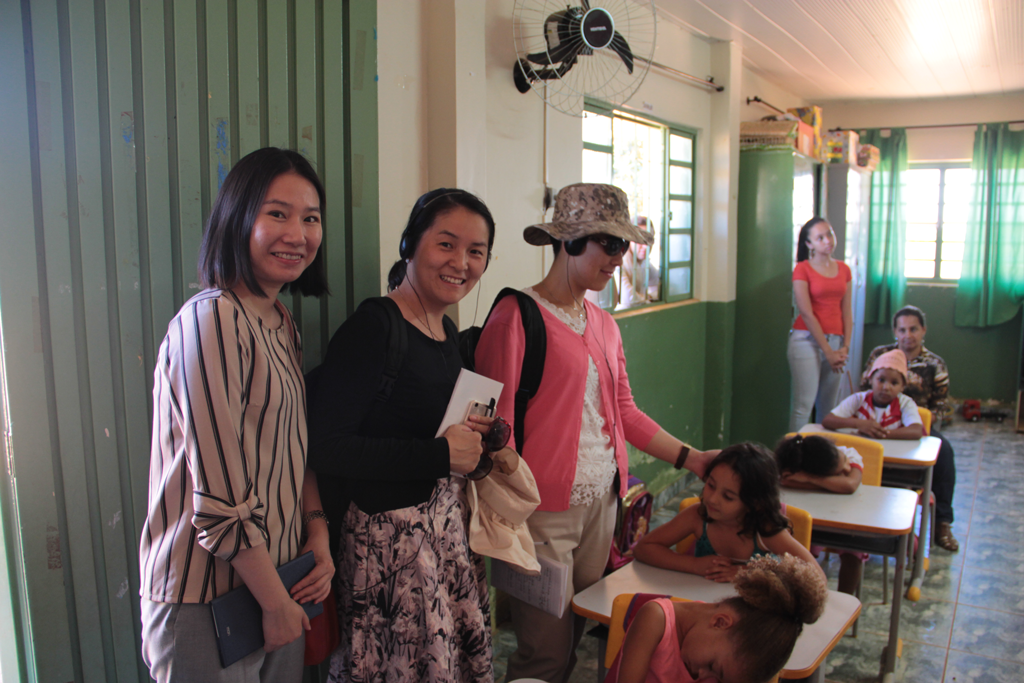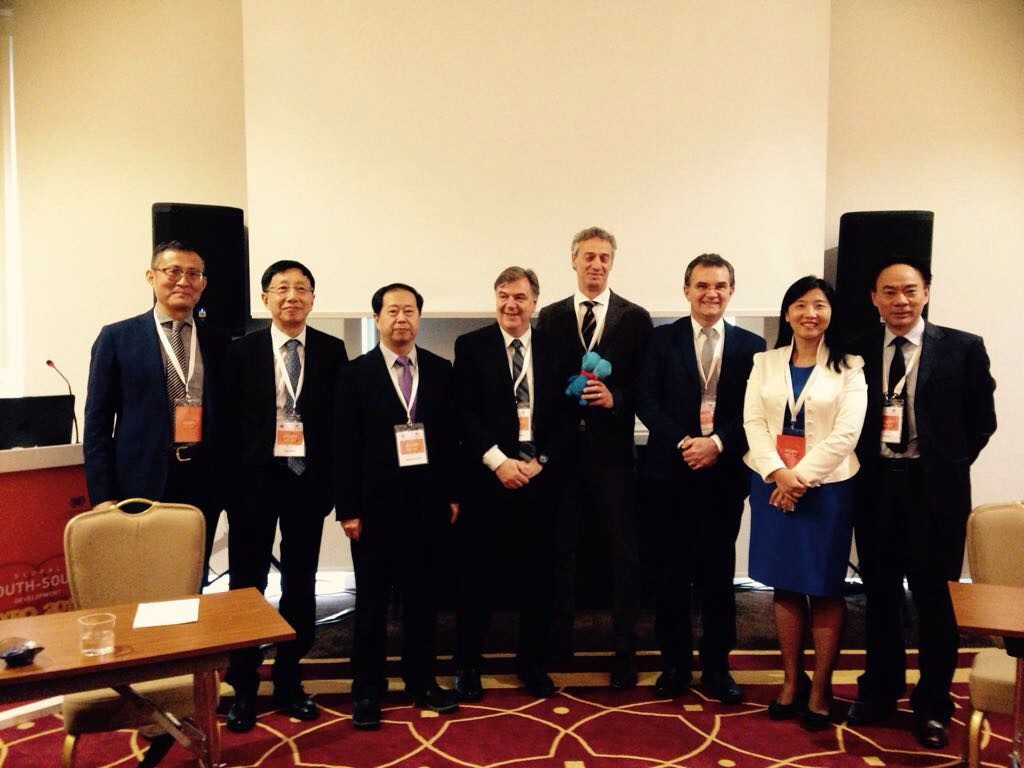
On 28 November, in Antalya, Turkey, WFP hosted a side event at the Global South-South Development Expo to highlight WFP’s approach to South-South cooperation and its network of centres of excellence. Brazil and China partnered with WFP to create a network of Centres of Excellences to combine and leverage complementary strengths and resources towards the implementation of the Sustainable Development Goal 2. Each Centre deploys different and effective South-South cooperation principles and modalities, driven by the demand of the countries that reach out for the support of the Centres.
The network of Centres of Excellence has become WFP’s most important mechanism for promotion of South-South and triangular cooperation to facilitate country-led efforts to improve food security and nutrition. The side event promoted dialogue and exchanges on South-South cooperation modalities and solutions between Brazil and China and provided and overview of Brazil’s and China’s South-South cooperation experiences and solutions.
The side event was moderated by WFP’s Purchase for Progress global coordinator, Dr. Bing Zhao. The deputy director of WFP Policy and Programme Division, Kenn Crossley, made the opening remarks. Dr. Shengyao Tang, deputy director general of the International Cooperation Department of China’s Ministry of Agriculture, and Dr. Sixi Qu, director of the WFP Centre of Excellence in China, presented the Chinese experience. Miguel Griesbach de Pereira, Minister at the Brazilian Embassy in Turkey, and Daniel Balaban, director of the WFP Centre of Excellence in Brazil, presented the Brazilian experience.

WFP
Facilitating South-South and triangular cooperation is a way to expand WFP’s engagement with developing countries to support country-led progress towards SDG 2. In the context of WFP’s work with host governments, South–South cooperation can be an important source of support for nationally owned efforts.
WFP promotes South-South and triangular cooperation through a diversified approach to South-South modalities, including expert deployments, intra-regional collaboration, demonstration sites, peer coaching networks, policy dialogue, technology transfer, academic partnerships or options for joint emergency response. To date, 62 percent of WFP Country Offices are engaged in South-South initiatives.
Brazil
The Centre of Excellence against Hunger in Brazil was the first experience of WFP in partnering with one developing country to promote South-South cooperation. Launched jointly by WFP and Brazil in 2011, the WFP Centre aims to identify and share innovative solutions to eliminate hunger among developing countries through South-South Cooperation.
The Centre draws on Brazilian experience in fighting hunger and poverty to share knowledge and policy innovations among developing countries. Primarily focused on linking school meal systems to local agriculture, it provides technical assistance to national governments to design, improve, expand, and eventually run their own school feeding programmes. The WFP Centre of Excellence against Hunger in Brazil also provides broader technical assistance in nutrition, smallholder agriculture and social protection, following the increasing demand from governments working towards the achievement of Zero Hunger by 2030.
China
Established in 2016, the WFP Centre of Excellence in China aims to leverage China’s successful experience in reducing poverty and hunger. The Centre works as a mechanism to enhance South-South and triangular cooperation by sharing China’s experience in food security, nutrition, and poverty alleviation with other developing countries.
The four priority areas of the WFP Centre of Excellence in China are: (1) Value chain development and market access for small-holder farmers; (2) Supply chain strengthening including post-harvest loss management and storage systems; (3) Climate adaptation, disaster risk reduction and resilience; (4) Implementation of national zero hunger and nutrition strategies. The Centre facilitates policy dialogue, technical training, expert deployment, policy research, and capacity strengthening.




